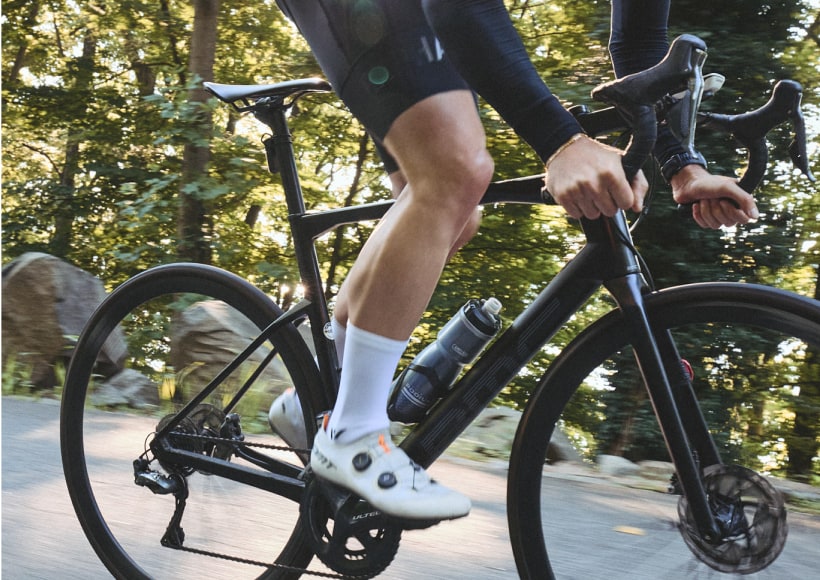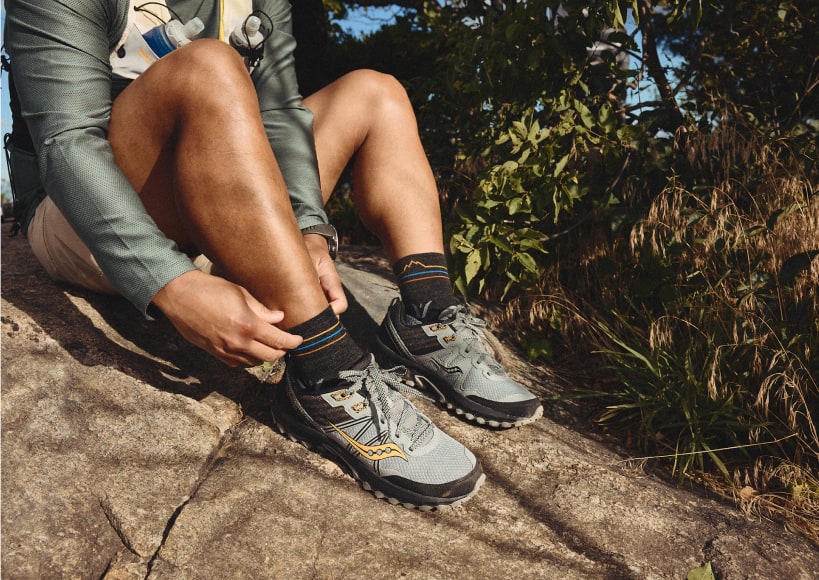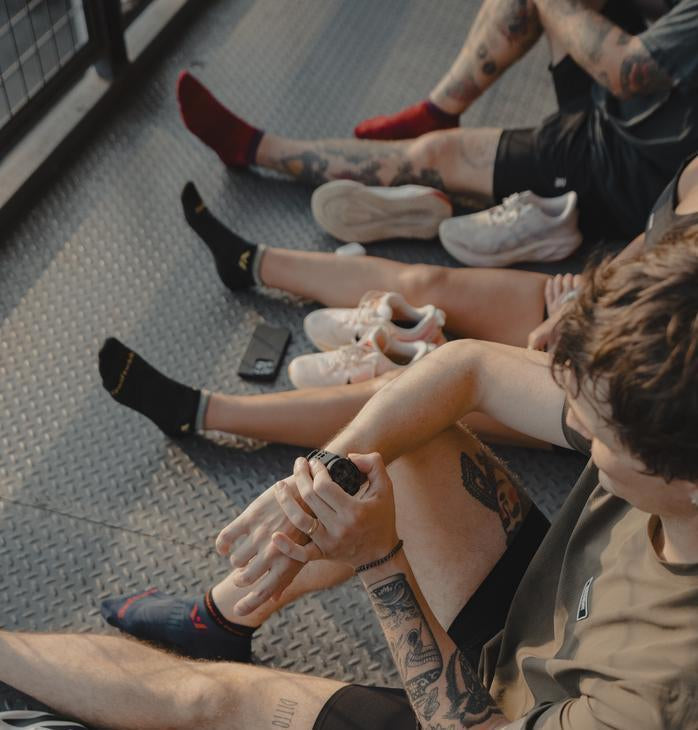October 18, 2024
Running Together: A Journey of Transformation Toward the Nashville Marathon
In celebration of Swiftwick’s hometown Nashville Half Marathon, we sat down with athletes and coaches who have spent 16 weeks together, training for the race. Each of them has taken a different path to get here, but they all share one thing: running has transformed their lives.
From finding community and peace to embracing the challenge and struggle of long-distance training, these athletes have come together, bonded by their shared love for running. Their journeys are personal, but their collective drive and determination speak to the power of the sport. We’re honored to support these runners as they prepare for race day, celebrating the resilience, commitment, and camaraderie that define their stories.
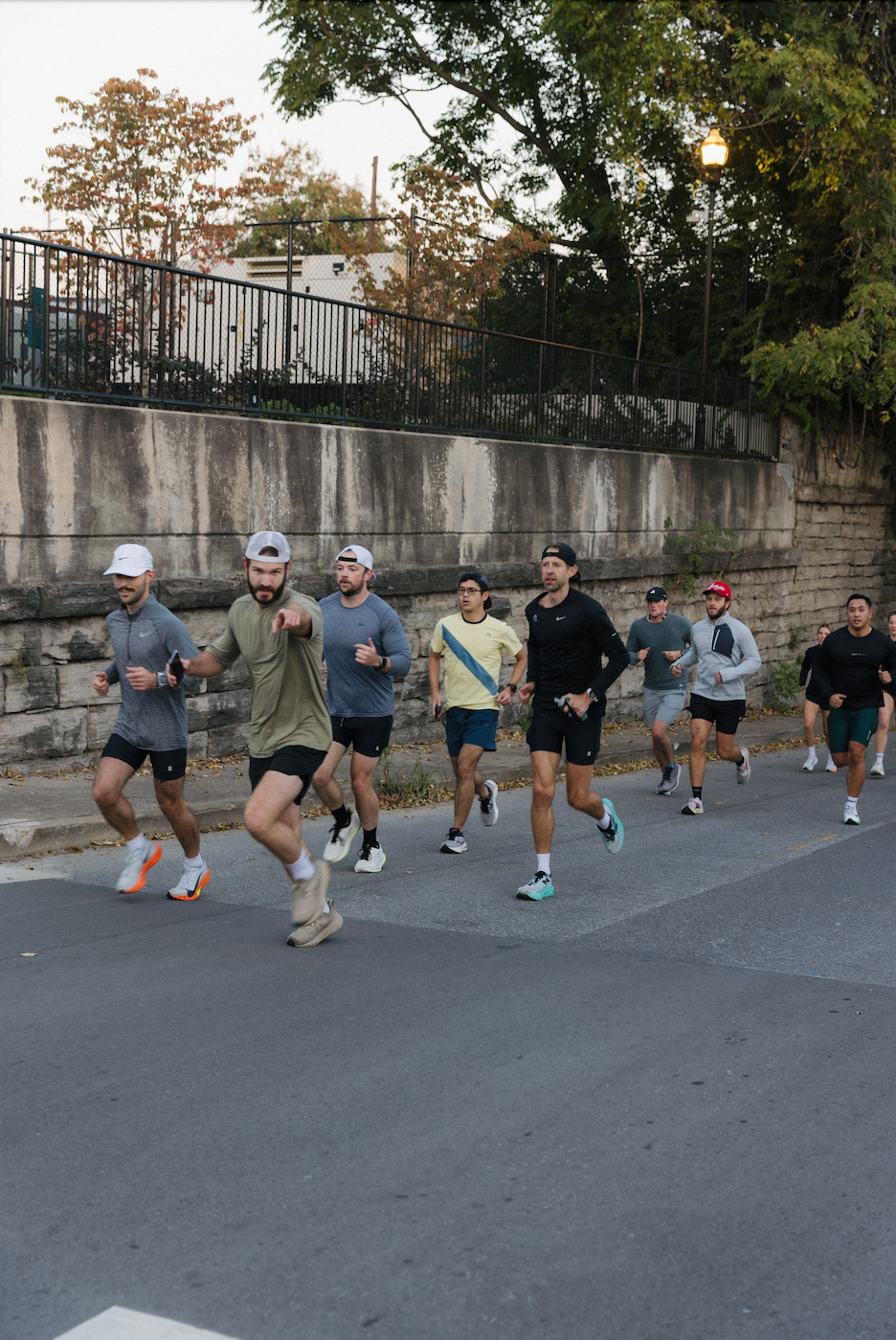
Photos by tristan cusick
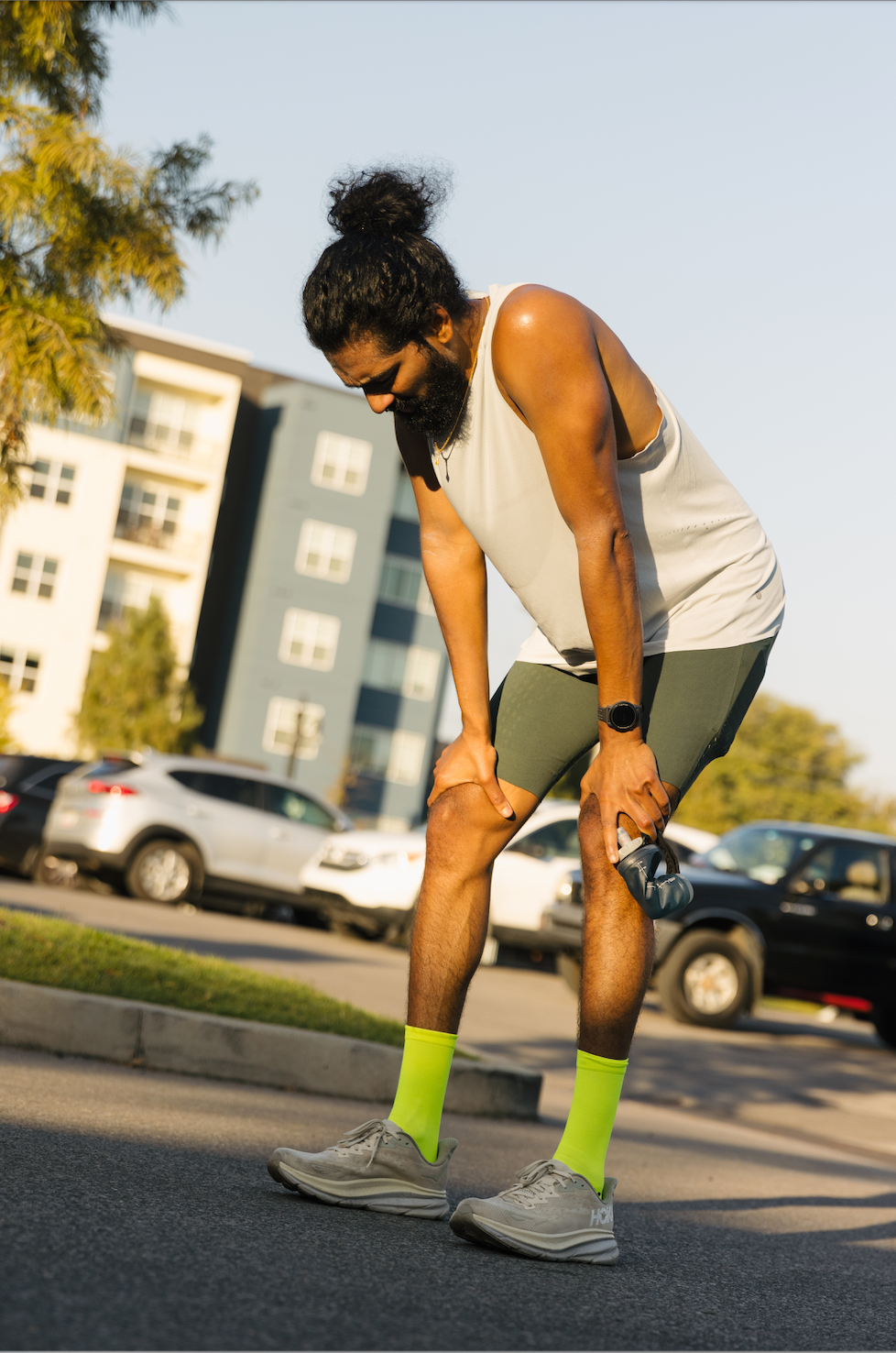
"The biggest lesson is that training looks different for everyone. There’s no one-size-fits-all plan."
- Beverly, Coach
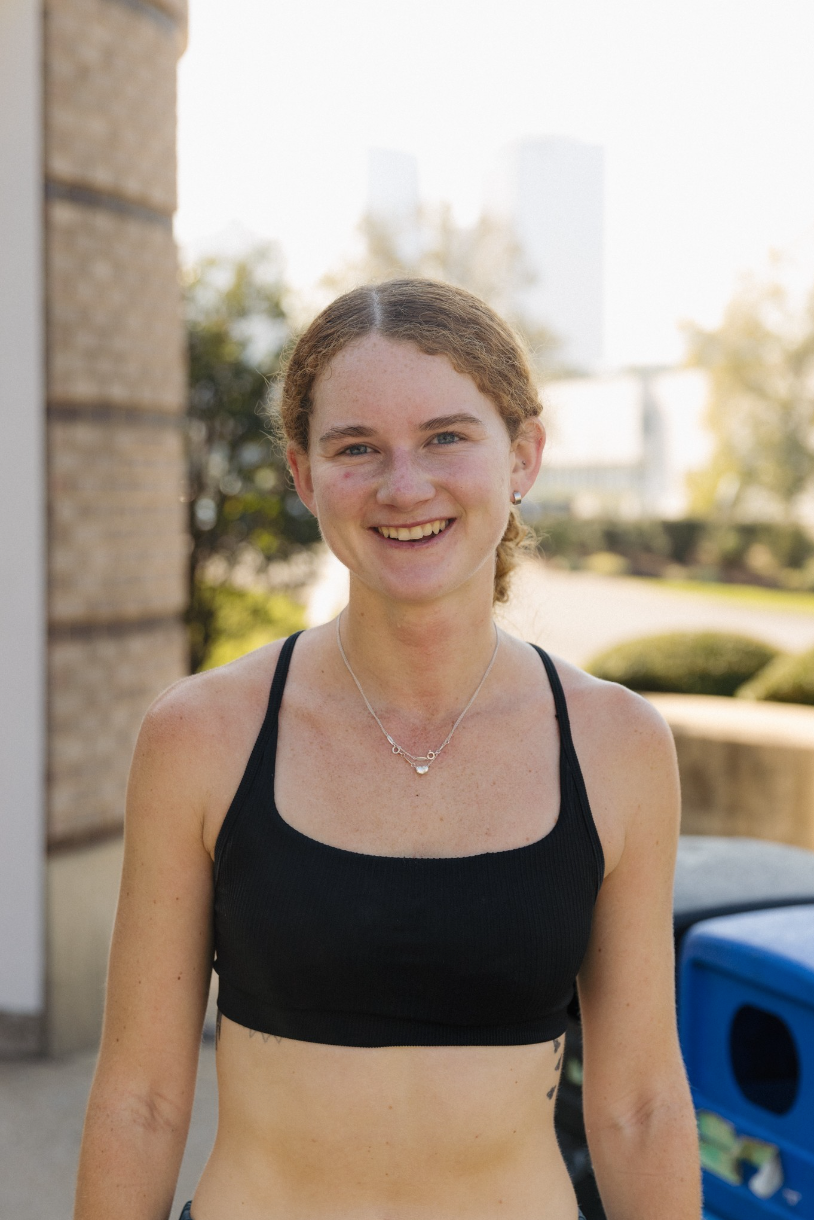
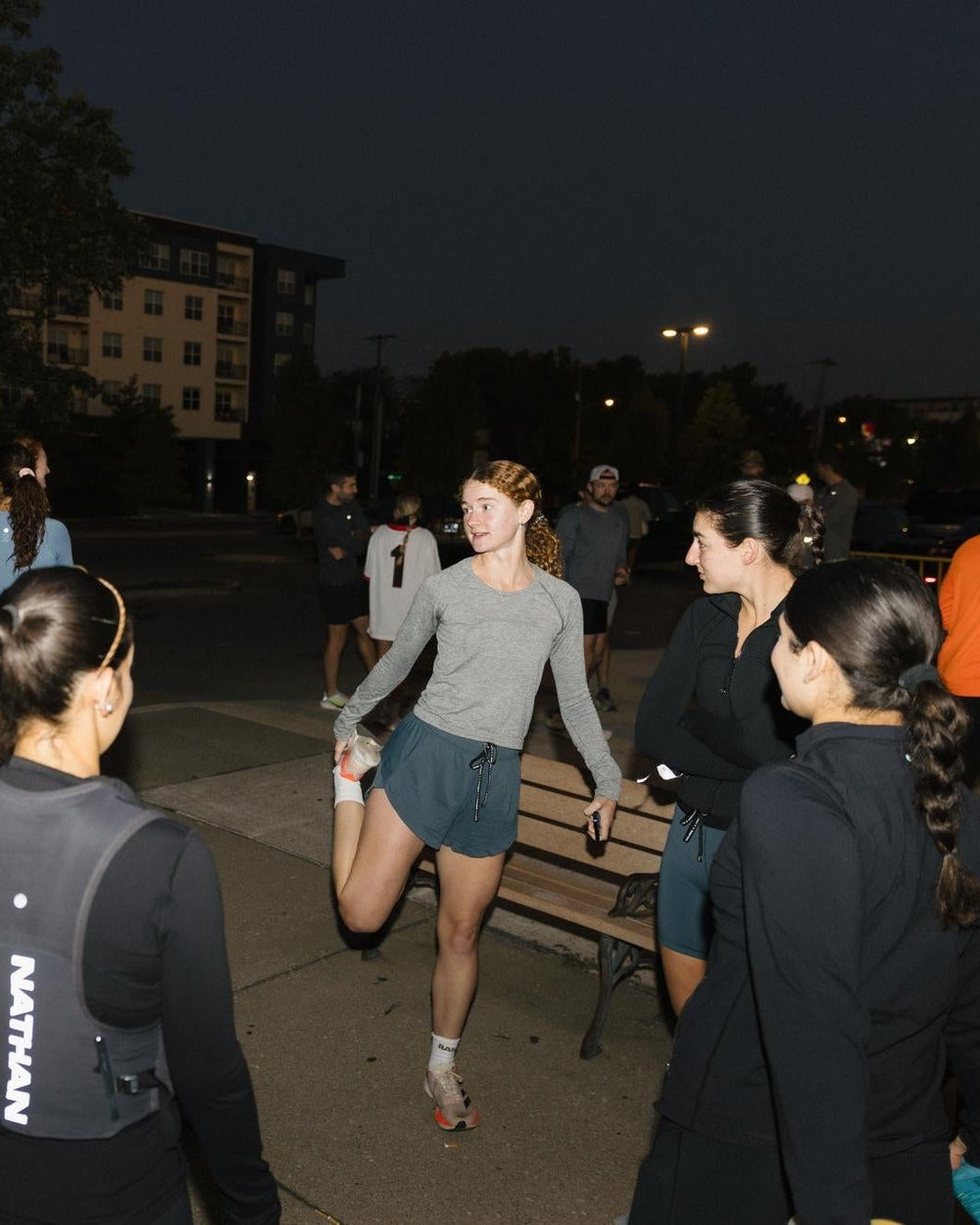
MEET BEVERLY
Coach
Q: How did you first get into running?
Beverly: I started running when I was 13. I grew up in a rural part of Vermont and was self-motivated—never did cross-country or track. I ran my first half marathon at 13 and my first full marathon at 16, just eight months after knee surgery. Since then, I've made it a point to run at least one marathon a year. Now, I'm moving into ultrarunning, but it's been nine years of marathon running for me.
Q: What have you learned as a coach?
Beverly: The biggest lesson is that training looks different for everyone. There’s no one-size-fits-all plan. Everyone’s body, schedule, and experience level are unique, so you can’t expect one training plan to work for everyone. That’s what makes a program like this so valuable. We customize it to fit people’s needs, and that flexibility helps prevent injuries and burnout.
Q: How do you stay motivated to keep running?
Beverly: Running is just part of my routine at this point. Running is like eating breakfast for me. I start every single morning with a run at 5am—it’s just something I do. That said, I needed more of a challenge beyond the marathon distance, which is why I’ve shifted to ultrarunning. Pushing my body to new limits is what motivates me now. I want to see how far I can go.
Q: Have you dealt with any mental or physical setbacks in your running journey?
Beverly: I started running after recovering from a knee injury at 16—torn ACL, meniscus, and some bone bruising from skiing. Since then, I’ve been lucky to avoid major injuries, mainly due to strength training. There are mental hurdles, especially around body image. Marathon training requires eating more, which can lead to weight gain, even though you’re in top physical shape. That’s been tough to accept, but I’ve learned to focus on function, not aesthetics. My body is capable of incredible things, and that’s what matters.
"It’s not just about the miles—it’s about the personal growth people experience in the process."
- Alex, Coach
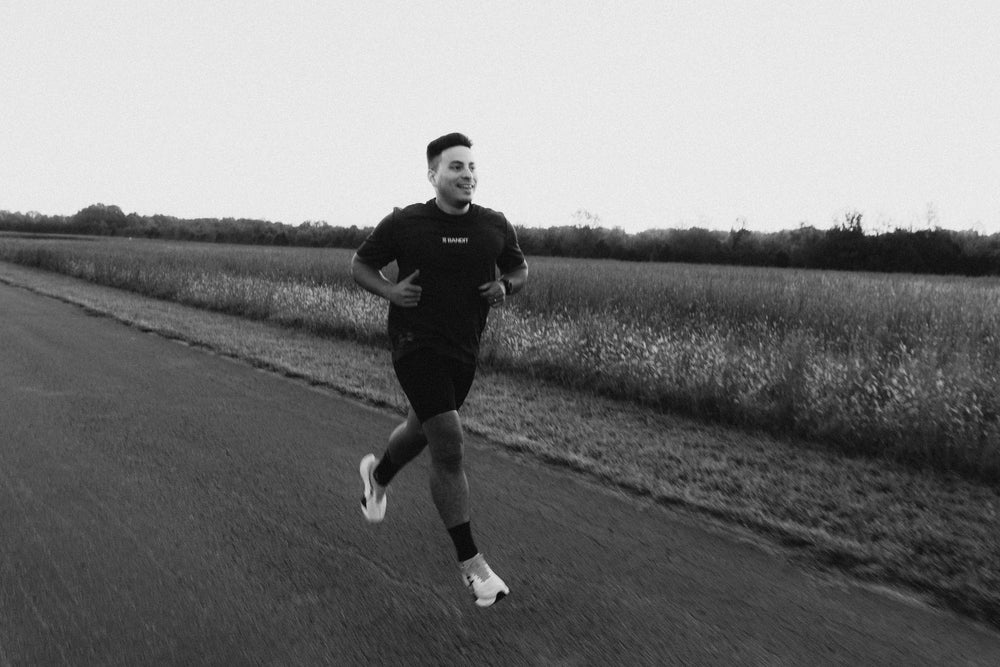
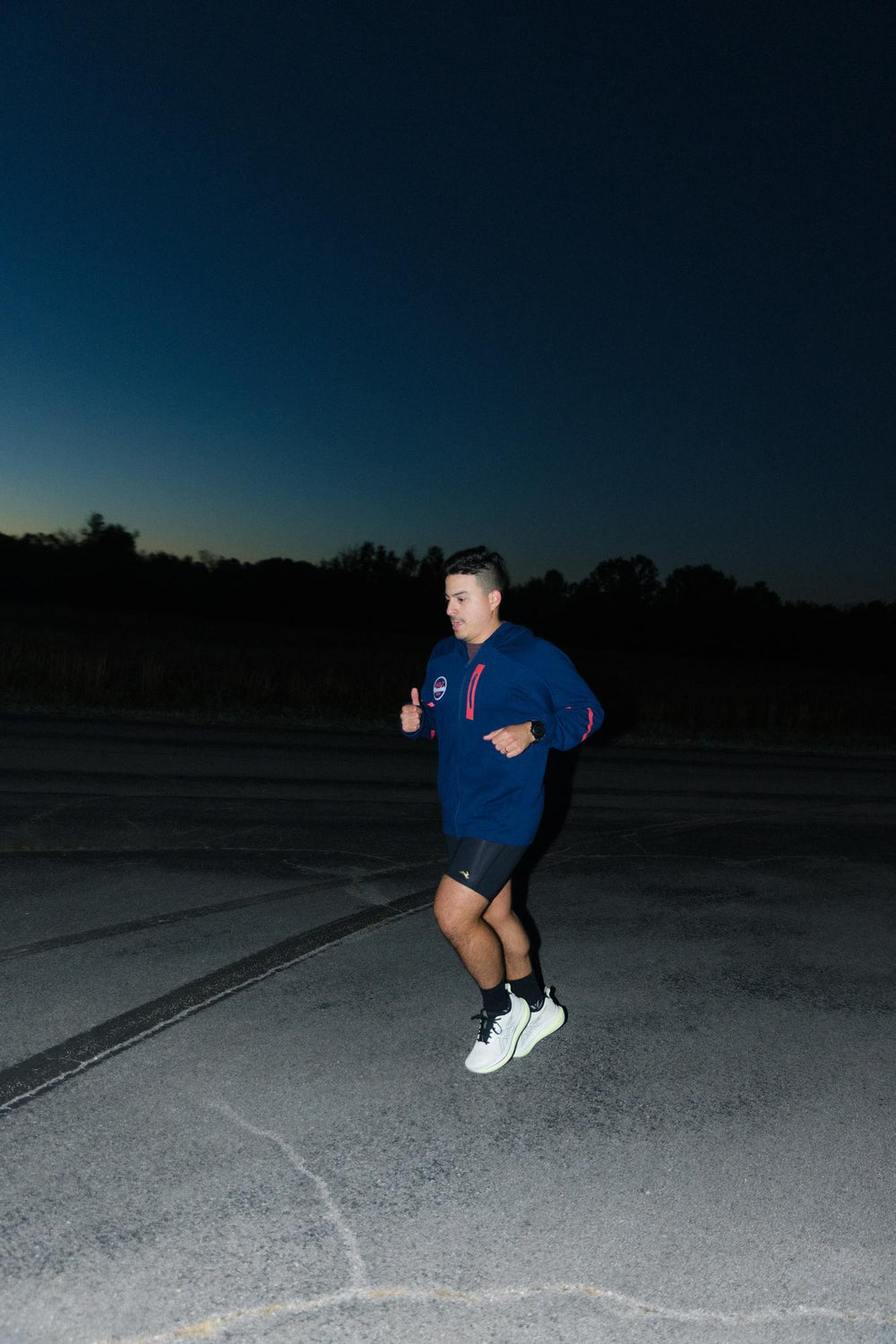
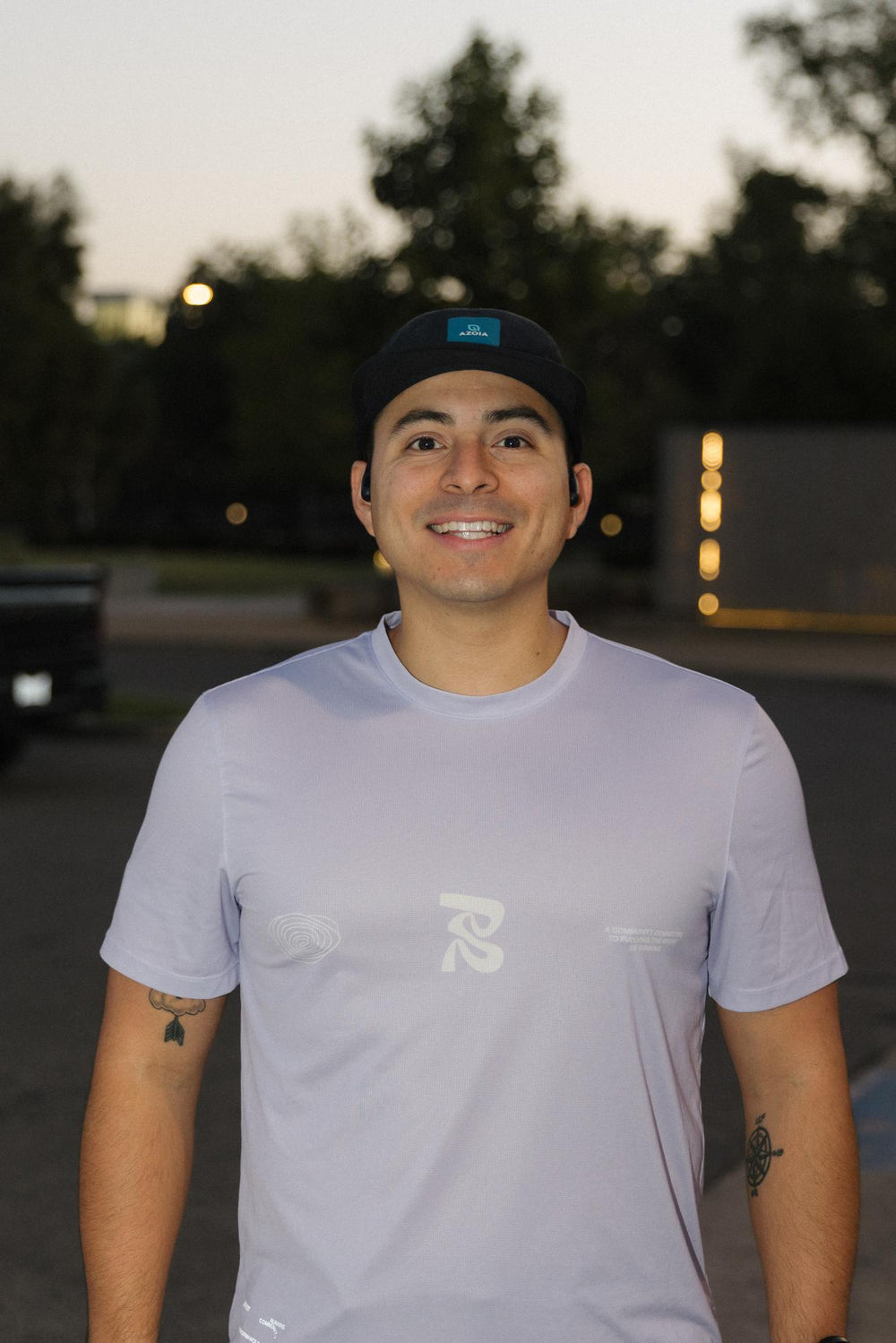
MEET ALEX
Coach
Q: Can you tell us more about your personal journey with running?
Alex: I grew up playing soccer, but I didn’t take running seriously until after dealing with atrial fibrillation. I had no idea what was going on with my heart, and it took a couple of years before I was properly diagnosed and treated. In 2022, after a successful procedure, my doctor told me I could live my life without restrictions. It felt like I was given a second chance. That was a turning point for me. I started running again, but I didn’t really know what I was doing until I got plugged into the 6Run5 Run Club. Being part of a community made all the difference—I learned how to train properly and discovered a love for running I never expected.
Q: What’s been the most rewarding part of being involved in The Program?
Alex: The most rewarding part is seeing people break through their mental barriers. We’ve had so many people who were afraid to run long distances at first, and then they go on to complete their first marathon or half marathon. Watching people unlock their potential and achieve goals they didn’t think were possible is what makes this program so special. It’s not just about the miles—it’s about the personal growth people experience in the process.
Q: What’s your approach to coaching, especially during tough workouts?
Alex: My approach is to keep it light and fun. Running can be hard, especially during track workouts or long runs, so I try to inject humor and remind people that we’re all in this together. People call me the hype man because I love to keep everyone motivated, even when it’s tough. I’ve learned that hard things bring people closer, and when we share those tough moments, it creates a bond. I want people to know that it’s okay to struggle, but we’ll get through it together.
Q: What advice would you give to someone just starting out with running?
Alex: My advice is to just start. It can be intimidating, but you don’t have to be fast or know everything. You just need to show up and be consistent. Don’t worry about the pace or what others are doing. The most important thing is to keep going, one step at a time. As long as you have a support system, like this program, you’ll surprise yourself with what you can accomplish.
"The friendships and support have been life-changing, and now I can’t imagine my life without running or the people I’ve met through this program."
- Alison, Athlete
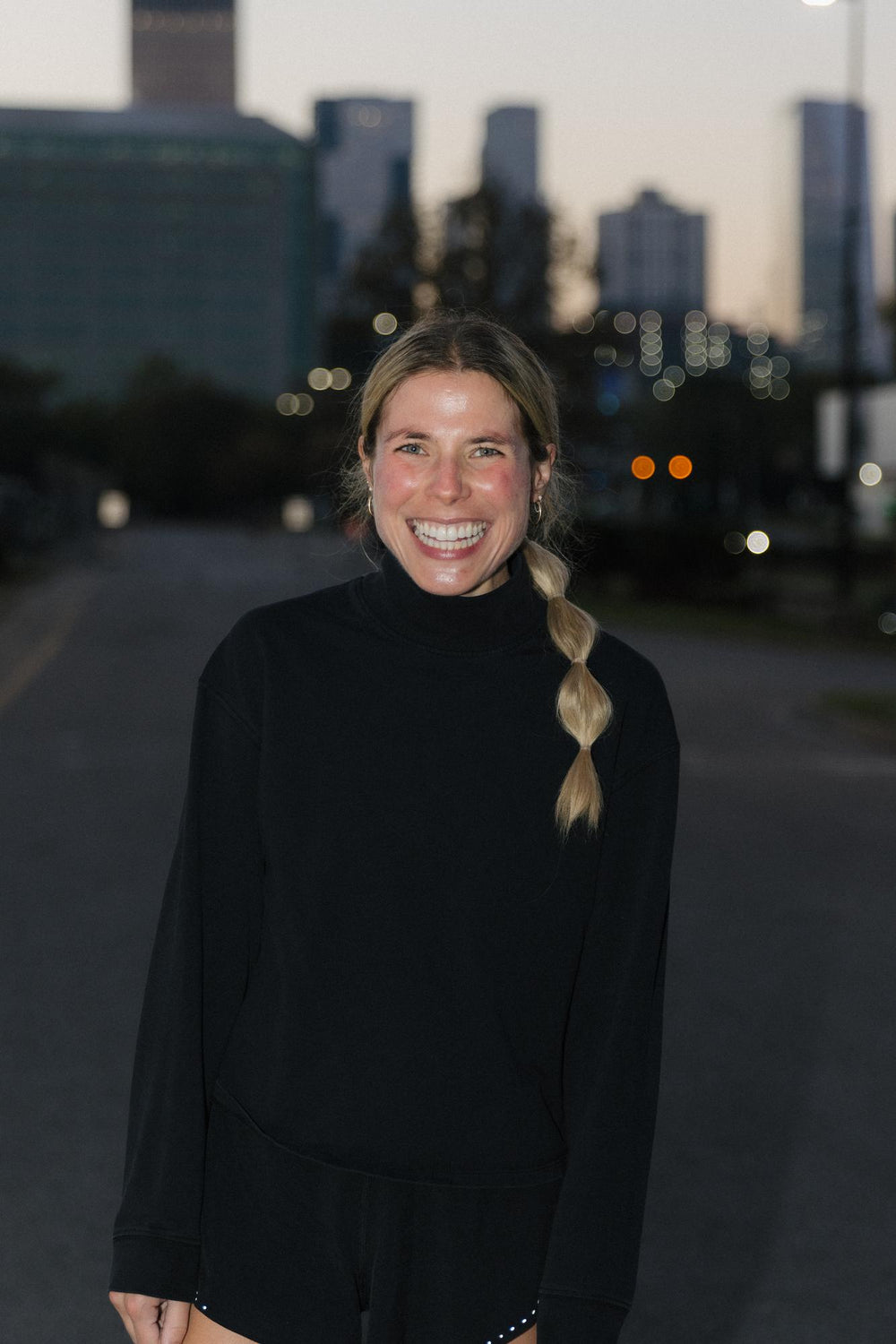
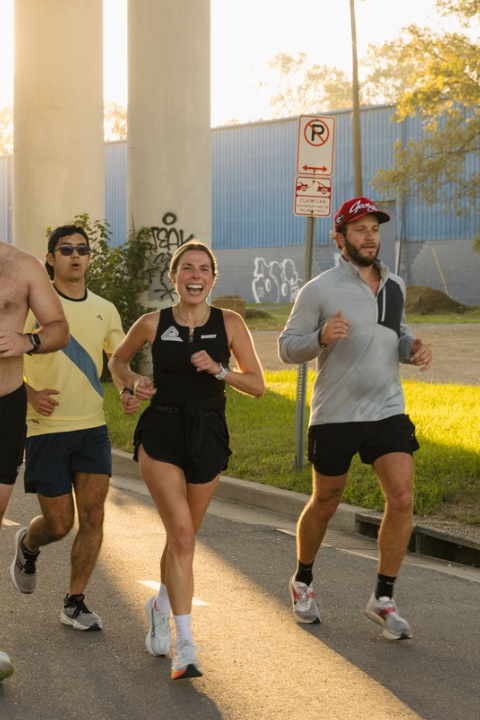
MEET ALISON
Athlete
Q: Can you tell us about your running journey and how you got started?
Alison: I grew up playing soccer and stayed active through cycling, but I started running seriously about two years ago. After hitting a milestone of 1,000 cycling classes, I felt my body needed something different, so I tried running. My first year, I trained for a half marathon alone and finished it, but I still felt a bit lost. Joining the Nashville running community changed everything—the friendships and support have been life-changing, and now I can’t imagine my life without running or the people I’ve met through this program.
Q: How has your experience with the running program changed the way you train?
Alison: It’s been a night-and-day difference. I used to train alone, and it was so easy to get stuck in my own head, constantly worrying about my pace. Now, with The Program, I’m surrounded by friends and a supportive community. I’ve learned to enjoy the process more and not stress as much about the technical details. During long runs, I love just being present, listening to conversations around me, and soaking in the energy of the group. It’s more fun, and I look forward to every Saturday. The community has helped me stay consistent and avoid the injuries I dealt with when I was training solo. Running with others has brought a new joy to the sport for me.
Q: How did you overcome the injury you faced last year?
Alison: Overcoming the injury was tough, both mentally and physically. I realized I needed to ask for help and listen to my body’s limits. I took six months to fully recover, and during that time, I leaned heavily on the support of the running community. Even though I couldn’t run consistently, I still showed up to be with everyone and stay connected. Being present, even when I wasn’t running, helped me push through the tough times. I learned the importance of rest and listening to the experts around me, and now I’m grateful to be running pain-free. I’ll never forget how the community kept me going when I needed it the most.
Q: What advice did you receive during this training block that made an impact?
Alison: The best advice I’ve received is to focus on the process, not just the outcome. I’m a very goal-driven person, so it’s easy for me to get caught up in wanting to hit certain targets. But The Program coaches and I talked a lot about resetting my goals and enjoying the journey. It’s been a huge shift for me to focus on the day-to-day moments, like how much I enjoy running on Saturdays with friends, rather than getting stuck on a particular pace or number. Running is about showing up and learning more about myself through the process. That mindset has made a big difference.
"In the process of getting to run, I embark on a journey where it allows me to know a version of myself that I did not know before."
- Karla, Athlete
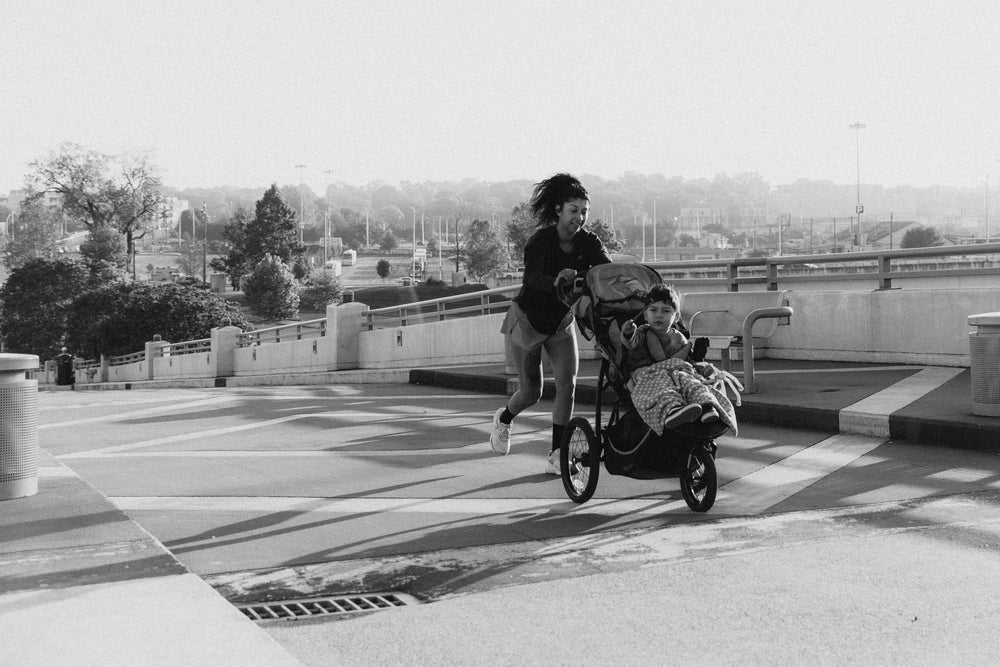

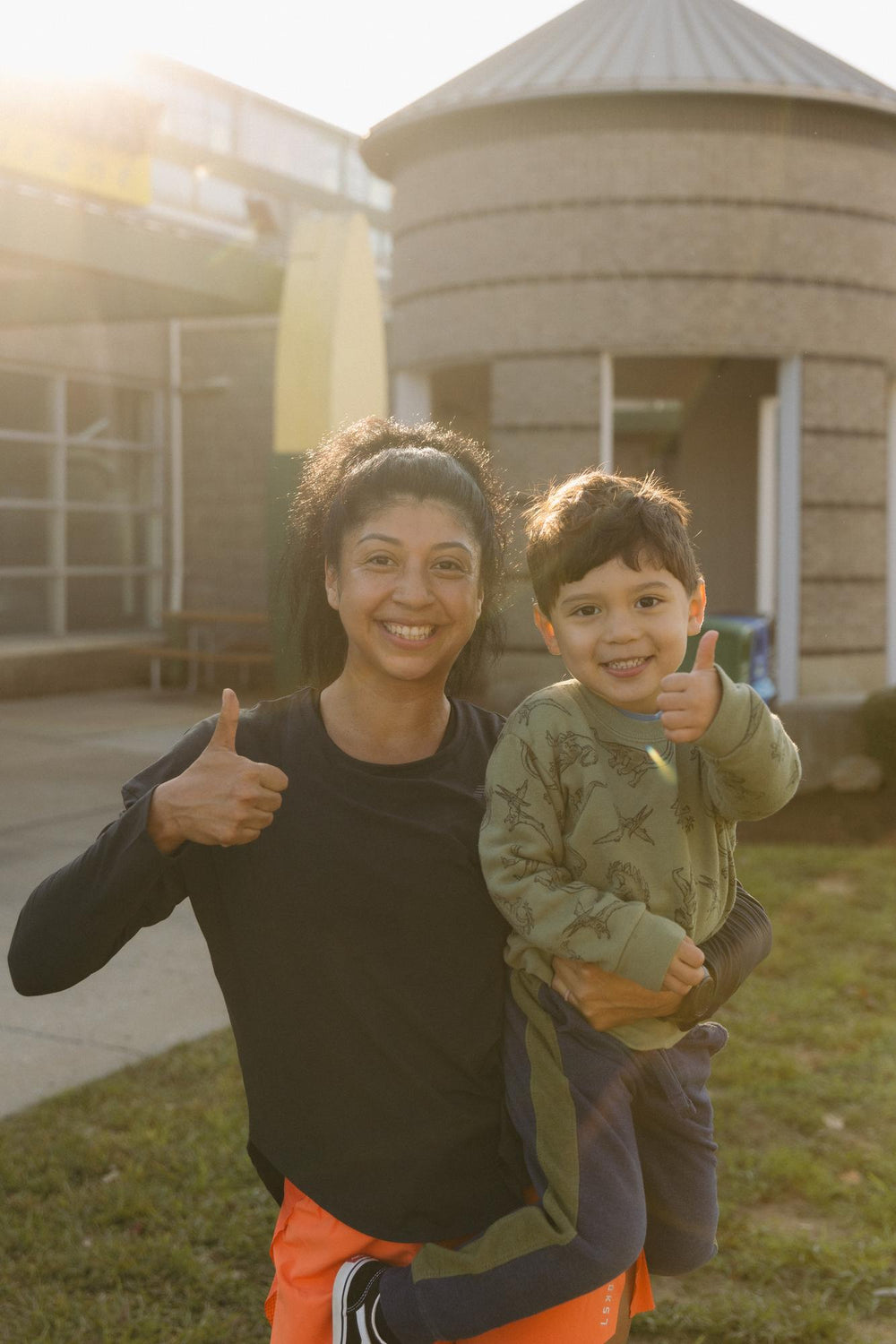
MEET KARLA
Athlete
Q: You run with a stroller, which is an added challenge. How do you push through mentally?
Karla: I remind myself that I get to run. Sometimes it gets really tough, and I have to dig deep. I look for inspiration in people who face bigger challenges. That perspective helps me push through when things feel dark. Running with my child is a privilege, and I hold on to that. It’s hard, but when I focus on gratitude and what running means for us, it helps me push past the mental blocks.
Q: How has your perspective on running changed since you started training?
Karla: At first, I was really discouraged. I kept thinking I’d be the slowest and was constantly worried about pace. But through training, I realized none of that matters. It’s about showing up, running, and feeling accomplished just for finishing. I’ve learned to focus on the journey rather than my speed.
Q: What advice would you give to other parents or moms thinking about running with a stroller?
Karla: Don’t worry about how slow you’re going or if you finish the race—just showing up is enough. Your kids are always watching, and you’re setting a great example for them. It’s not easy, but it’s worth it. Be proud of yourself for being out there, and don’t let anyone make you feel like you shouldn’t be running with a stroller.
Q: What’s something you’ve learned about yourself through this process?
Karla: I’ve learned that pain is my friend. Whether it’s pushing up a hill with the stroller or dealing with emotional pain, I’ve realized that I can push through it. Pain has made me mentally stronger, and now when I feel like I can’t do something, I remind myself that I can—and I do it anyway.
Q: Why do you run?
Karla: I run because I get to run, in the process of getting to run, I embark on a journey where it allows me to know a version of myself that I did not before. Whether it be the struggle, the pain, or the accomplishments, it’s who I become during the journey that matters the most. I wouldn’t be able to learn all these new things about me if I wasn’t allowed or didn’t have the ability to run. Running has become my safe space, when I run I start thinking about all my feelings. Running allows me to be vulnerable with my thoughts and emotions.
"Running isn’t just about miles on the pavement—it’s been a rebirth for me and a way to nurture my inner child."
- Chirag, Athlete
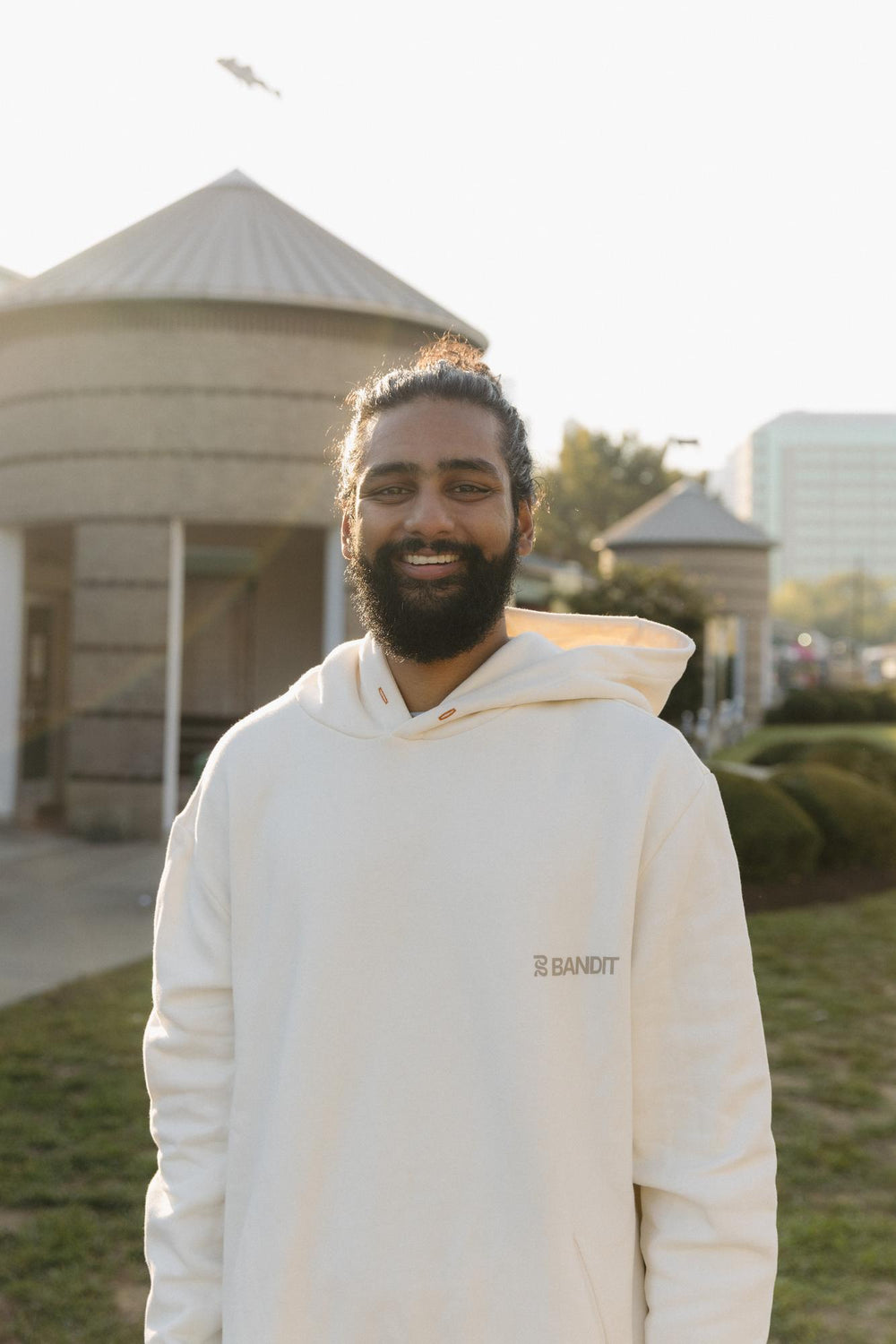
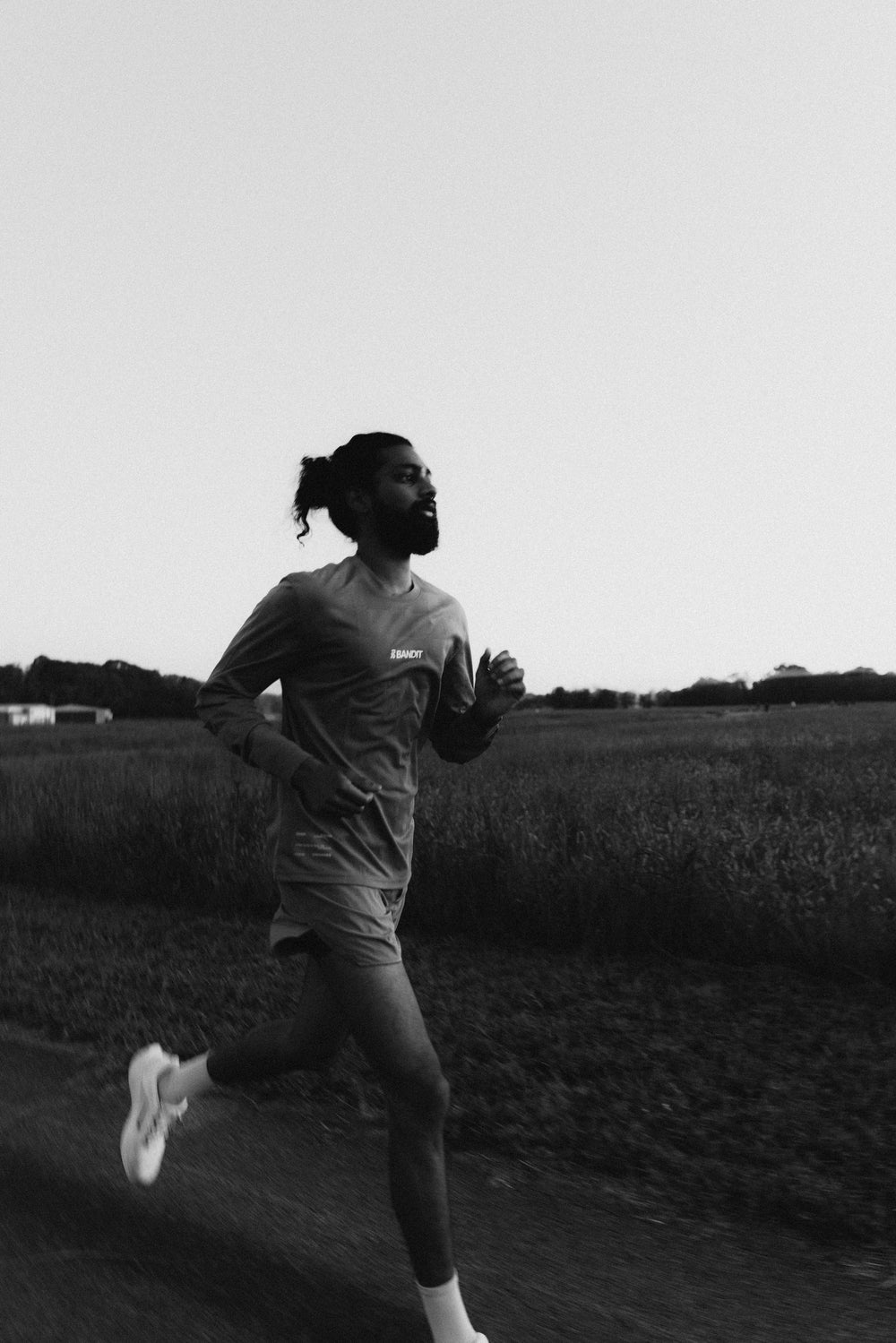
MEET CHIRAG
Athlete
Q: Can you tell us about your background and how you got into running?
Chirag: I grew up with a negative relationship with running. In school, I dreaded running the mile. But after a tough breakup, quitting my job, and going through some personal transitions last year, I decided to double down on myself. Running became part of that. I set a goal to run a 5K on my 30th birthday, and I did it. It was a small achievement, but it unlocked something in me. During a year of traveling the world, I started running in different cities as a way to explore, and over time, running became a moving meditation and a communion with nature. It wasn’t about pace or distance; it was about finding peace and pushing through tough times.
Q: How has running impacted your mental health?
Chirag: Running has been the biggest mental health win for me. In the past, I didn’t always deal with tough times in the best way, but now, running is my healthy outlet. It's become a way to process my emotions and feel grounded. The act of putting one foot in front of the other, especially with the support of the community, has helped me rebuild myself. Running isn’t just about miles on the pavement—it’s been a rebirth for me and a way to nurture my inner child.
Q: What have you learned about yourself during this journey?
Chirag: I’ve learned the importance of moving at my own pace—both in running and in life. For a long time, I felt the pressure to keep up with others. But running has taught me that it’s okay to go at your own speed. That’s been a game-changer for me, especially as I juggle running a company, co-founding another one, and training. I’m not out here trying to be the fastest. I’m just showing up as myself and putting in the work.
Q: What advice would you give to someone considering their first marathon or half marathon?
Chirag: Start slow, and don’t worry about the finish line right away. The race isn’t the goal—it’s everything that happens leading up to it. Enjoy the process. It’s downloading Strava for the first time, buying your first pair of running shoes, and the first time you go on a run with someone. Celebrate the small moments along the way, because they’re what make the journey special. And remember, progress isn’t linear—there will be ups and downs, but it’s all part of the experience.

